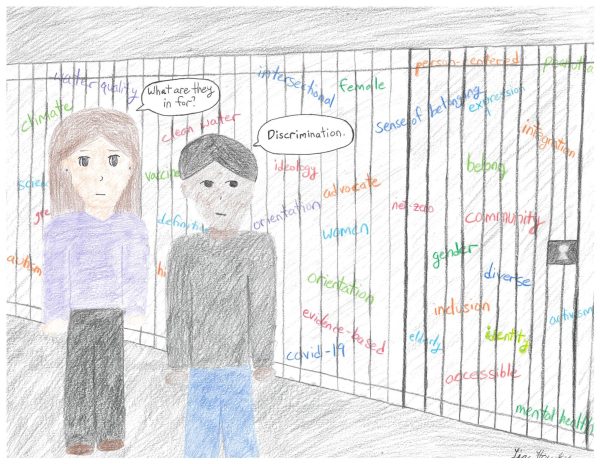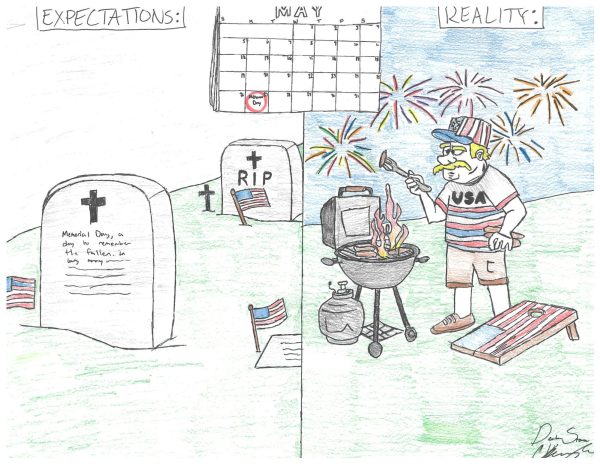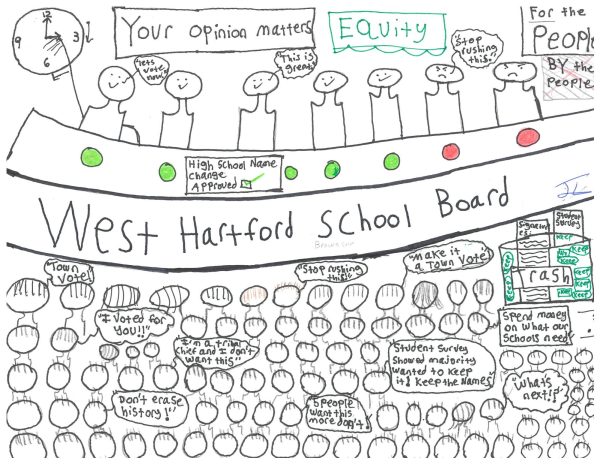We’re All in a Meaningless Matrix: Social Disintegration in Digitized America
In case it’s not clear already, the social fabric of America is increasingly falling apart. People are more atomized and lonely (the Surgeon General just declared loneliness an epidemic), and polarization is so intense that it has ruptured both the political process and the relationships between Americans.
Coupled with our consumerist culture, which author Chris Hedges’ calls the “Cult of the Self,” and the fact that the average American IQ, according to a paper in the journal Intelligence, is falling, things are looking grim.
In my view, this can largely be attributed to our digitized world. To understand this conundrum and its symptoms, we first have to look at the model social media companies use, then the philosophical and social implications of social media and an ever-increasing amount of information.
The Social Media Model
The social media model is explored in the 2020 documentary “The Social Dilemma” by a multitude of important tech designers, social scientists, and investors. As they explain, the entire model is based on treating the user as a product, by drawing them to the platform as long as possible to increase the chance ad revenue will be raised.
It keeps users hooked by manipulating and exploiting their psychology through subtle design features and powerful algorithms which harvest the totality of the users’ data and make extraordinarily precise recommendations based on that data.
The user’s natural craving for social validation and dopamine is satisfied by the continual emergence of new, personalized content and the general system of likes and dislikes.
And I write “users” because computer scientist Edward Tufte says, “There are only two industries that call their customers ‘users’: illegal drugs and software.”
So what is the result of this? Well, it’s self-evident: In America, and internationally, people live their realities on social media, trapped in an endless cycle of information and “social connection” that is ultimately empty..
To connect the emptiness of mass information with the lonely, atomized, and desperate character of modern America, it’s worthwhile to discuss the ideas of Korean-German philosopher, Byung Chul Han.
Byung Chul Han’s Philosophy
In a 2022 interview with Noema magazine, Han presents his idea of information without narrative. He argues that, “Everything that unites and binds is disappearing. There are hardly any shared values or symbols, no common narratives [or “truths”] that unite people.”
He further states “that the digitization of reality leads to atomization.” This is due to a few ideas that he outlines – the first being that information, unlike truth or knowledge, is not substantial, but only additive.
“Bits of information provide neither meaning nor orientation. They do not congeal into a narrative. They are purely additive… they [don’t] inform, they deform… [Whereas] truth illuminates the world, information lives off the attraction of surprise, pulling us into a permanent frenzy of fleeting moments,” Han says.
His second idea is that all bits of information are met with contingency (suspicion), and thus fake news becomes a fact of the informational order. It rushes past truth before it can be checked, and becomes the dominant mode of social perception.
What these first two points mean in summary is that we live in a technological reality where we are constantly bombarded with unsubstantial information. We are living in a continual present; but because contingency necessarily comes with information, we cannot grasp a foothold on what occurs around us.
And it’s not like we are provided with any answers either. Han continues by comparing the overbearing presence of narratives in the past with the lack of them in the present in an enlightening way: Whereas “in antiquity, mythical narratives determined people’s behavior, the Middle Ages were determined by religious narratives,” and in the 20th-Century people could choose from either the communist or capitalist narrative, now there is no public narrative, no public sphere.
Han then notes the paradoxically anti-social nature of social media – “Information is spread without forming [the public sphere]. It is produced in private spaces and distributed to private spaces… it is communication without community.”
There are, Han continues, “No longer… any narratives that provide meaning and orientation for our lives. Narratives crumble and decay into information. With [some exaggeration], there is nothing but information without any hermeneutic… interpretation, without any… explanation. Pieces of information do not coalesce into narrative forms of knowledge or truth.”
The result is a world that is completely addicted to digital platforms and devices but has no ability to understand the realities which have been, in many ways, created and exacerbated by these very same platforms. And so, when people are faced with the absurd meaninglessness of their reality, they will turn to undemocratic polarization and tribalization.
If our reality is purely irrational and emotional, algorithmically satisfying our craving for more “additive” entertainment, then our responses will be of the same character.
Digitization breeds demagogues, it breeds distrust and causes a man to become increasingly angry and fearful, and lonely.
Anomie
The second concept to consider is Anomie, a term coined by the sociologist Durkheim, describing the condition of instability that arises when past shared societal values and meanings have been uprooted, and new ones are not in place. It often produces psychological states of futility and despair in society members.
It is enlightening to consider anomie through Han’s ideas. Digitization has not just uprooted past shared meanings, it has destroyed the concept of shared meanings themselves! So of course people have what Chris Hedges terms “American anomie” (never minding the other economic and social conditions that social media arguably only exacerbates).
The Coddling of our Minds
If most of this article seemed too jargonistic or abstract, I want to end on a more relevant and concrete note.
To hark back to the beginning of the article, digital platforms are extremely addictive. And Gen Z/A’ers are the first generation to grow up completely embroidered in this digital reality. This is concerning because it means the intellectual capacities of future generations are rapidly weakening, enslaved by an algorithm to which they feed all of their data.
We consume information for the sake of consuming information, we lack the ability to create bonds or trust with strangers, and we gain validation and worth by vain popularity contests on platforms from Snapchat to Reddit. (And as has been said repeatedly by social media critics, and still stands true, is that the mental health of teenagers is being destroyed by social media.)
What this means is that when we become adults, we will passively drink the poison of digitization and suffer all of its deadly symptoms, like polarization and anomie.
We will be ugly, selfish people, completely atomized, who may not even realize the conundrum which we are in. We will have no awareness of life and the natural world. Depression, loneliness, suicide, discontent, all of it will continue to rise, and we will continue searching for dopamine rushes like parched men stumbling around for water in a cruel desert.
What Now?
It’s hard to find a strict solution to a problem this large, but I can always turn to Chris Hedges to give me some hope. As he writes in his article “Worshiping the Electronic Image”, – “the more we turn off our screens and return to the world of print, the more we seek out the transformative power of art and culture, the more we re-establish genuine relationships, conducted face-to-face rather than through a screen, the more we use knowledge to understand and put the world around us in context, the more we will be able to protect ourselves from the digital dystopia.”
So, sorry if I sound like a boomer, but something as simple as just turning off your phone can go a long way to helping humanity’s future.





